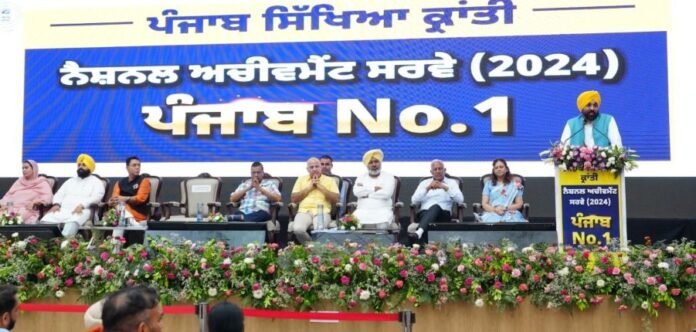In a forward-thinking move aimed at reshaping the future of its students, the Punjab government has announced that it will introduce structured skill-based education in schools starting from the 2026–27 academic session. The initiative is designed to empower students with practical knowledge in areas such as business, marketing, and entrepreneurship—turning schools into incubators for future job creators rather than merely job seekers.
The scheme, which is expected to roll out across both urban and rural government schools, comes as part of the state’s broader education reform agenda under the leadership of Chief Minister Bhagwant Mann. According to top officials in the Department of School Education, the policy will target students from middle to senior secondary levels, particularly those in Classes 9 to 12, at an age when career interests begin to take shape.
What makes this initiative unique is its integration of skill-building into the academic curriculum—not as a separate vocational course, but as a parallel framework of applied learning. Modules will reportedly cover business fundamentals, digital marketing, sales strategy, financial literacy, startup planning, and basic soft skills such as communication, negotiation, and time management. Students will also receive guidance on how to draft business plans, pitch ideas, and evaluate risks—tools often taught only at the graduate or MBA level.
According to a spokesperson from the Education Ministry, the curriculum is being developed in partnership with industry experts, business schools, and leading entrepreneurs to ensure that content remains relevant and outcome-driven. “We are not just teaching theory—we want to instill a mindset of innovation and self-reliance in our youth,” said the official.
This marks a significant pivot in Punjab’s traditional education narrative, which has long struggled with outdated syllabi and minimal focus on employability. The move also aligns with India’s National Education Policy (NEP) 2020, which emphasizes holistic, multidisciplinary, and skill-oriented learning.
The impact of such an initiative could be profound, especially for Punjab—a state grappling with brain drain, youth unemployment, and a dependency culture created by limited economic diversification. By introducing entrepreneurship education early, the government aims to equip students with tools to build their own ventures, especially in sectors like agriculture-tech, e-commerce, and digital services.
Moreover, the initiative seeks to tap into Punjab’s rich legacy of entrepreneurship. From trading families to agricultural innovations and global diasporic businesses, Punjabis have historically excelled in creating wealth and enterprise. The new educational model aspires to bring that spirit back to the grassroots.
However, the policy’s success will depend heavily on implementation. Challenges remain, including the need for upskilling existing teachers, upgrading school infrastructure, and ensuring digital access—particularly in rural and underserved areas. Educationists stress that the state must invest in rigorous training programs for educators, provide incubation opportunities for school projects, and establish monitoring bodies to track outcomes.
There is also discussion about incorporating startup internships, business competitions, and mentorship programs from local entrepreneurs and chambers of commerce. The Punjab State Education Board (PSEB) has hinted that pilot projects in select districts may begin as early as the 2025–26 session to fine-tune the model before statewide rollout.
Reactions from parents and educators have so far been encouraging. “This is a long overdue reform,” said Kamalpreet Kaur, principal of a government school in Patiala. “Our students are full of ideas—they just need the right exposure and support. If we teach them how to think like problem-solvers, we will transform not just their lives but the economy of Punjab.”
The business community, too, has expressed interest in collaborating with schools to build talent pipelines and promote grassroots innovation. Several companies have already approached the education department with proposals for mentorship models and CSR-linked funding to support student ventures.
In a time when global economies are being reshaped by entrepreneurship, AI, and digital platforms, Punjab’s attempt to rewire its education model toward creativity and enterprise is a step in the right direction. If successful, it could serve as a blueprint for other Indian states and even developing countries looking to harness the power of youth-driven innovation.
#PunjabEducationReform #SkillBasedLearning #StartupIndia #YouthEntrepreneurs #BhagwantMann #NEP2020 #EntrepreneurshipEducation #IndianSchoolReforms #PunjabYouth #JobCreators
This is an auto web-generated news web story.




